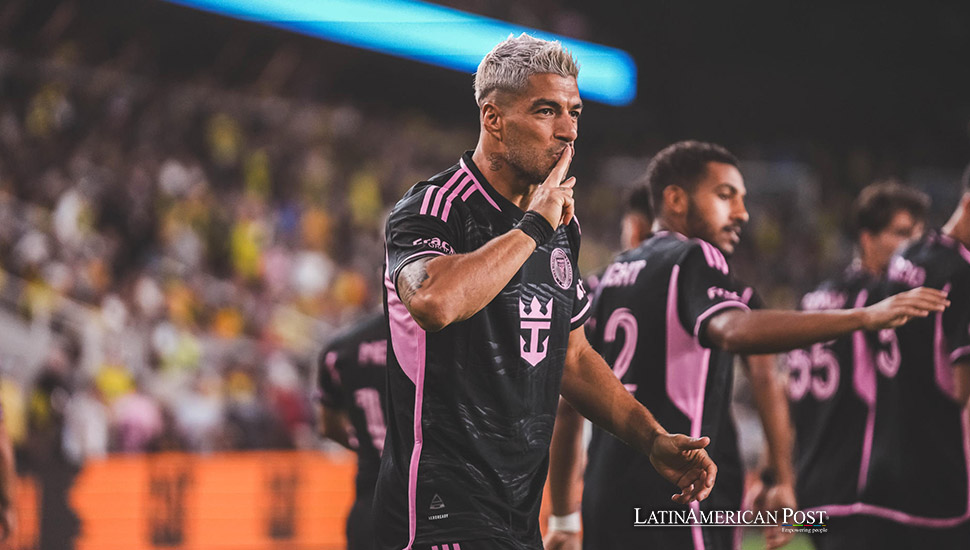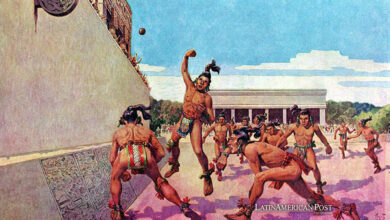Suarez’s Clash with Bielsa’s Uruguay National Team Culture

Luis Suarez’s retirement from Uruguay’s national team was not just the end of a glittering international career but also a stinging critique of Marcelo Bielsa’s management style. Suarez lamented the changes in team culture and predicted explosive tensions.
Tensions Under Bielsa’s Leadership
One of Uruguay’s greatest soccer icons, Luis Suarez, has never shied away from expressing his opinions. His latest remarks, however, have sent shockwaves through Uruguay’s soccer world. In an emotional interview with DSports Uruguay, Suarez spoke about the challenges of working under new manager Marcelo Bielsa. “Players are going to reach a limit and explode,” he warned, describing a toxic environment that has emerged within the national team under Bielsa’s leadership.
Suarez’s frustrations stem from his experiences at the Copa America, a tournament that ended with Uruguay’s elimination in the semifinals and sparked internal tension. “There were situations that hurt to see,” Suarez said. “Some players told me, ‘Luis, I’ll play the Copa America and then I won’t play again.’” This, he argued, is a sign of deeper issues brewing under the surface.
The former striker explained that while Uruguay’s culture has always been demanding, the environment was once enjoyable, even during challenging moments. Previous coaches, such as Óscar Tabárez and Diego Alonso, fostered a camaraderie that motivated players and staff to go the extra mile. But with Bielsa, Suarez claimed, that atmosphere has vanished. “All of that has been lost at the training complex,” he lamented.
One incident that stood out for Suarez involved winger Agustín Canobbio, who was made to train with U-20 players acting as sparring partners—an unusual and demeaning task for a player on the official tournament roster. Suarez called this a “complete lack of respect” and expressed anger over the situation.
The clash between Bielsa’s rigid, impersonal approach and the more familial environment that once characterized Uruguay’s national team creates friction. Suarez’s account paints a picture of a team on the brink, with frustrations bubbling beneath the surface, waiting to erupt.
Suarez’s Lasting Influence on Uruguay’s Soccer
Though his words were sharp, Luis Suarez’s impact on Uruguay’s soccer history remains legendary. With over 60 international goals, four World Cup appearances, and countless memorable moments, Suarez has become a symbol of Uruguay’s fighting spirit on the global stage. His name will forever be associated with Uruguay’s 2011 Copa America victory and the nation’s formidable performances in World Cup tournaments.
Suarez’s passion for representing his country has always been evident, but it was never just about personal glory. His leadership and dedication inspired a generation of Uruguayan players, many of whom now fill the squad’s ranks. Throughout his career, Suarez embodied the “garra charrúa” mentality—an indomitable spirit and fierce pride. This mentality has been critical to Uruguay’s ability to compete against larger soccer nations and achieve consistent success.
However, Suarez’s criticism of the current team’s environment under Bielsa is a reminder that even in a sport driven by individual excellence, team culture is just as influential. His exit marks the end of an era, but his influence will continue to be felt, particularly among younger players like Darwin Núñez and Ronald Araújo, who looked up to him as a role model.
World Cup Qualifying: Uruguay’s Standing So Far
Uruguay’s journey to the 2026 World Cup is already underway, and while the team has shown moments of promise under Bielsa, their path is far from smooth. The World Cup qualifiers are always grueling in the competitive CONMEBOL region, where South American powerhouses like Brazil and Argentina often dominate.
Uruguay’s Strong Standing in World Cup Qualifiers
Uruguay’s World Cup qualification campaign for the 2026 tournament in Canada, Mexico, and the United States is already off to a promising start. After eight matches in the CONMEBOL Eliminations, La Celeste sits in third place with 15 points and a goal difference of +8. Despite a recent 0-0 draw with Venezuela, which saw Uruguay drop from second to third place, the team remains in a strong position, trailing only Argentina (18 points) and Colombia (16 points).
Uruguay’s performances in the qualifiers have been solid, showcasing the talent of seasoned veterans and rising stars. Bielsa’s emphasis on high-intensity pressing and quick transitions has brought flashes of dynamic soccer, although inconsistencies remain. Nevertheless, Uruguay’s position in the standings—ahead of teams like Ecuador (11 points), Brazil (10 points), and Venezuela (10 points)—gives them a strong chance of securing one of the four automatic World Cup berths.
The upcoming fixtures will be crucial for maintaining their position in the top three. With tough matches ahead against Brazil and Ecuador, Bielsa will need to balance his tactical preferences with the morale of his players to ensure Uruguay’s path to qualification remains smooth. The tension Suarez highlighted must be addressed to prevent it from affecting team performance as the qualifiers continue.
One of Uruguay’s challenges is integrating Bielsa’s high-intensity, high-pressing style with the squad’s existing strengths. Younger players like Núñez, Federico Valverde, and Facundo Pellistri have adapted well to Bielsa’s demands, showing flashes of brilliance on the pitch. However, the team’s veterans, who thrived under previous managers, struggle to find footing in this new era.
Uruguayan Soccer at a Critical Crossroads
The national team is at a critical juncture. Suarez’s revelations highlight the deeper issues within the squad, which could either be resolved through unity or escalate into a full-blown crisis. Marcelo Bielsa’s managerial style has always been polarizing—his demanding, detail-oriented approach works wonders in some contexts. Still, it can also alienate players used to a more personal, relationship-driven environment.
The critical question is whether Bielsa can balance maintaining discipline and fostering team cohesion. Uruguay’s soccer history is rich with moments of triumph born from unity and collective effort. However, it is also littered with examples of internal strife undermining the team’s potential. Suarez’s decision to step away from the national team may have been a personal one, but it also reflects the cultural clash within the squad.
Uruguay’s path to the World Cup hinges on how they navigate this transition period. Bielsa has the talent at his disposal, with a mix of promising young stars and experienced veterans. Still, he will need to build a stronger sense of camaraderie if Uruguay is to perform at its best.
The squad is undeniably in transition. Another veteran, Edinson Cavani, is also nearing the end of his international career, and a new generation is rising. Players like Núñez, Valverde, and Araújo must lead and guide the team through the challenges ahead.
Suarez’s criticism may be a wake-up call for Bielsa and his coaching staff. As the team pushes forward in the World Cup qualifiers, they must address the internal tensions that threaten to derail their progress. Uruguay’s success has always been built on a solid collective spirit; without it, their road to the World Cup could become far more complex than anticipated.
Also read: Argentina’s Post-Messi Soccer Tactical Shifts and Challenges
Luis Suarez’s candid critique of Marcelo Bielsa’s leadership reveals more than just personal frustrations—it exposes the growing divide within Uruguay’s national team. As the team navigates a challenging World Cup qualifying campaign, the tensions highlighted by Suarez could prove decisive. Whether Uruguay can regain its cohesion and move forward as a united squad will be crucial for its future success. The national team stands at a crossroads, with its legacy of “garra charrúa” spirit hanging in the balance.





